Belarus Leader Says Putin Offers Help As Pressure Builds
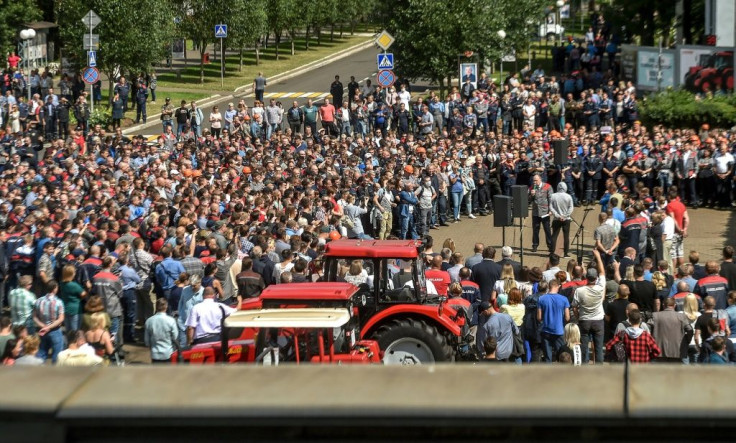
Vladimir Putin has offered to help ensure Belarus's security, according to its president Alexander Lukashenko, as pressure builds on the strongman leader and opposition protesters prepare for a show of force Sunday.
Thousands demonstrated in the capital Minsk Saturday after main election challenger Svetlana Tikhanovskaya asked supporters to rally over the weekend and keep alive a movement that poses the biggest challenge to Lukashenko's hold over the ex-Soviet country.
Many gathered at the spot where Alexander Taraikovsky, 34, died on Monday during protests against an election the opposition says was rigged to give Lukashenko another term in office.
Demonstrators heaped flowers at the spot and the crowd chanted "Thank you!" and raised victory signs. Police kept a low profile.
Many held up photographs of protesters beaten during the crackdown, while one man stood in his underwear revealing the purple bruises on his thighs, buttocks and back.
Later thousands protested outside the Belarusian state television centre, complaining that their broadcasts backed Lukashenko and gave a skewed picture of the protests.
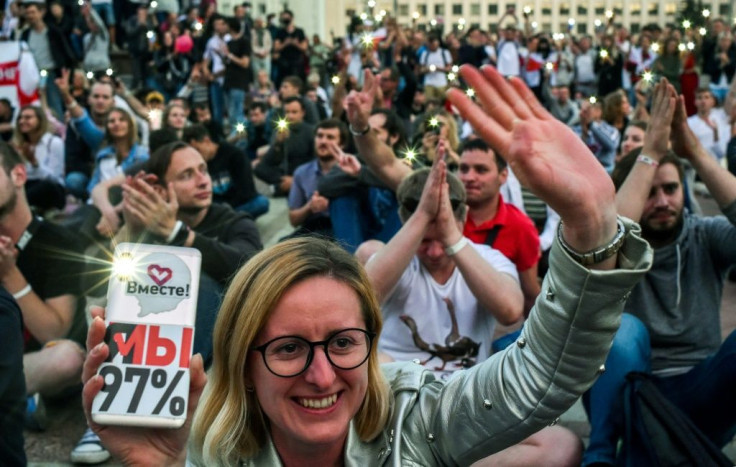
Around 100 staff came out of the building to join the crowd, and said they planned a strike on Monday.
"Like everyone we are demanding free elections and the release of those detained at mass protests," said one employee, Andrei Yaroshevich.
Riot police later arrived at the centre and blocked off the entrance to the building.
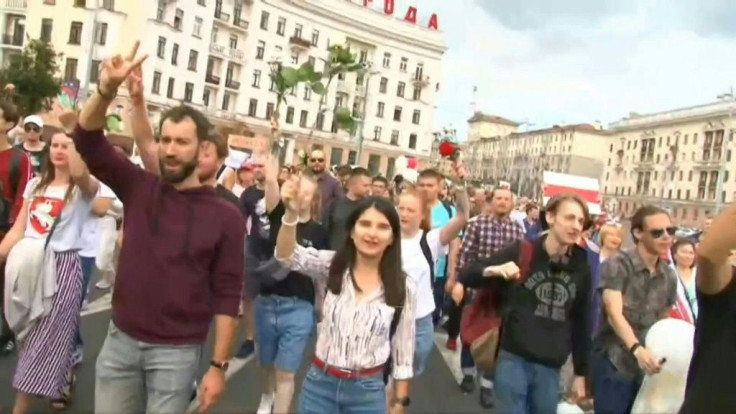
The opposition is planning a major show of force on Sunday with a "March for Freedom" through the streets of central Minsk.
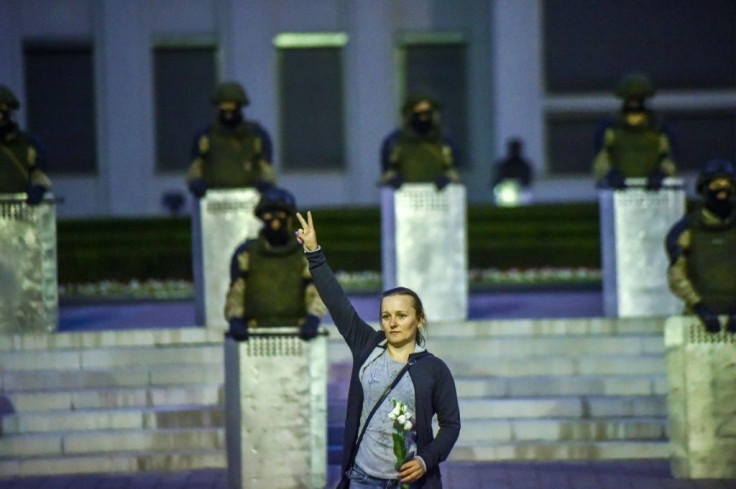
Facing the biggest challenge to his rule since taking power in 1994, Lukashenko called in Moscow's help and spoke on the phone with Putin Saturday, after warning there was "a threat not only to Belarus".
He later told military chiefs that Putin had offered "comprehensive help" to "ensure the security of Belarus".
The Kremlin said the leaders agreed the "problems" in Belarus would be "resolved soon" and the countries' ties strengthened.
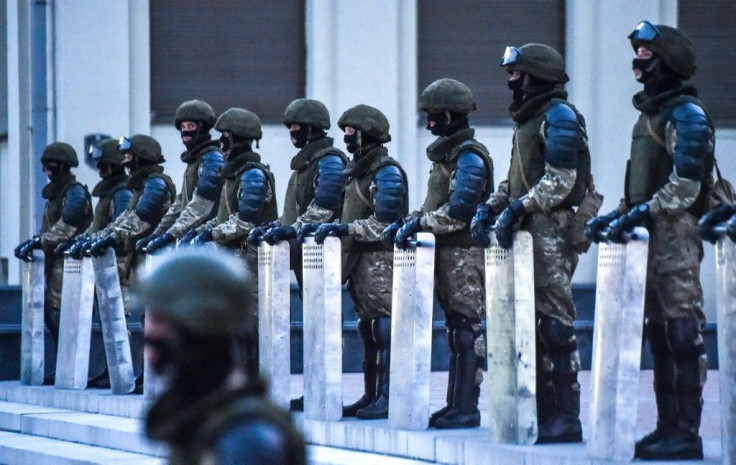
While Lukashenko periodically plays Moscow off against the neighbouring EU, Russia is Belarus's closest ally and the countries have formed a "union state" linking their economies and militaries.
Lukashenko criticised Russia during his election campaign and Belarus detained 33 Russians on suspicion of planning riots ahead of polls.
Opposition protesters slammed Lukashenko for now seeking Moscow's aid and said they fear Russian intervention.
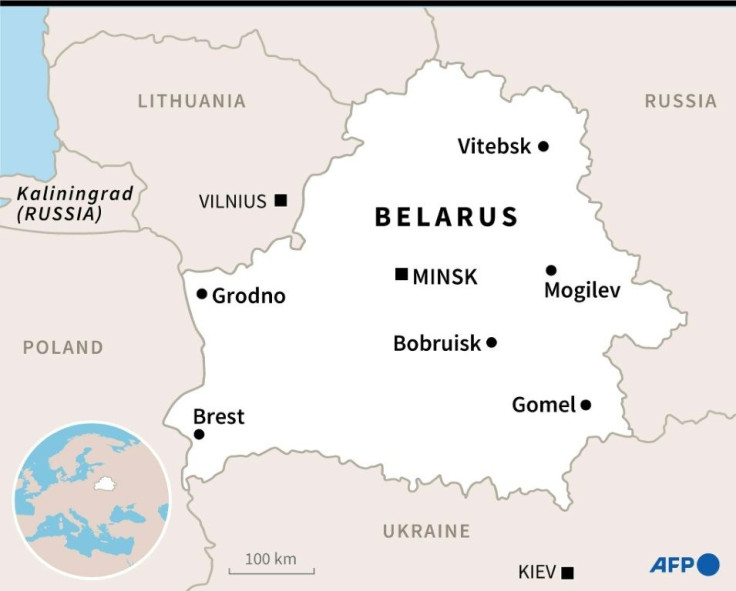
"It's obvious that our president can't deal with his own people any more, he's seeking help in the east," said Alexei Linich, a 27-year-old programmer.
"If Russia intervenes, that would be the worst. I'm really afraid of this," said Olga Nesteruk, a landscape designer.
US Secretary of State Mike Pompeo on Saturday urged Lukashenko to "engage with civil society", during a trip to Poland, which has offered to act as a mediator.
Tikhanovskaya, a 37-year-old political novice who ran after other opposition candidates including her husband were jailed, accuses Lukashenko of rigging the vote and has demanded he step down so new elections can be held.
The 65-year-old has ruled Belarus with an iron grip and claims to have won the election with 80 percent of the vote.
Tikhanovskaya left the country on Tuesday for neighbouring Lithuania, with her allies saying she came under official pressure.
She is also demanding authorities be held to account for the crackdown, which saw police use rubber bullets, stun grenades and, in at least one case, live rounds to disperse protesters, with at least 6,700 people detained and hundreds injured.
Officials have confirmed two deaths in the unrest, including Taraikovsky -- who they say died when an explosive device went off in his hand during a protest -- and another man who died in custody in the southeastern city of Gomel.
On Friday authorities began releasing hundreds of those arrested and many gave horrific accounts of beatings and torture.
European Union ministers have agreed to draw up a list of targets in Belarus for a new round of sanctions in response to the post-election crackdown.
Lukashenko has dismissed the demonstrators as foreign-controlled "sheep" and "people with a criminal past who are now unemployed", repeatedly accusing foreign governments of plotting his downfall.
Tikhanovskaya on Friday announced the creation of a Coordination Council to ensure a transfer of power, asking foreign governments to "help us in organising a dialogue with Belarusian authorities".
She demanded the authorities release all detainees, remove security forces from the streets and open criminal cases against those who ordered the crackdown.
© Copyright AFP {{Year}}. All rights reserved.





















